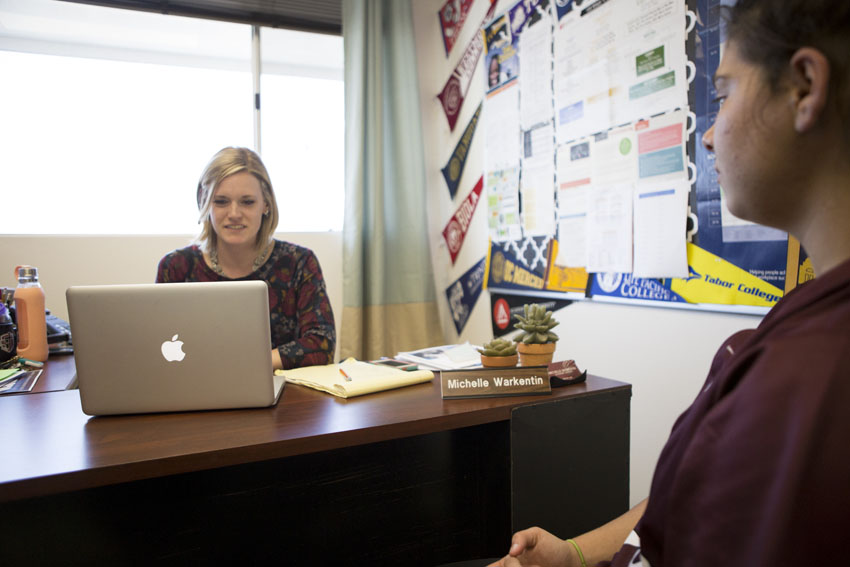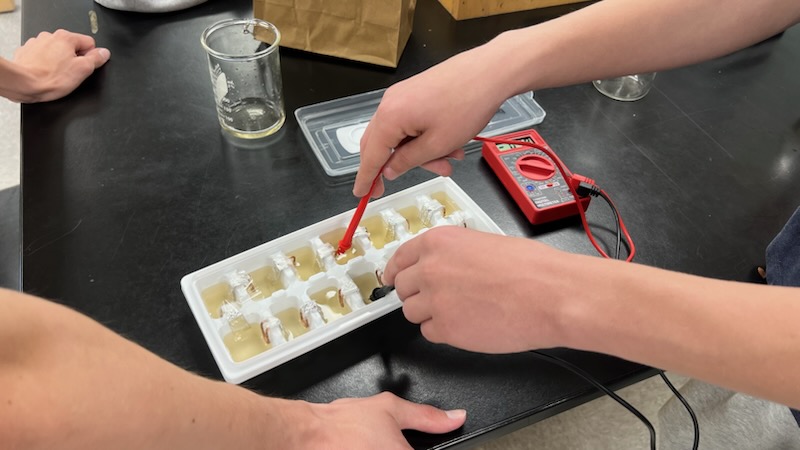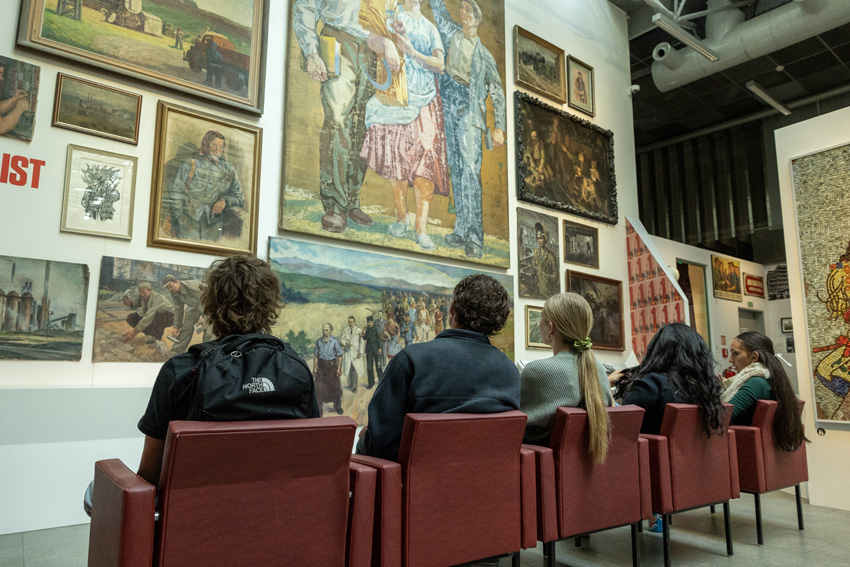Michelle Warkentin advises students

Academic advisor Michelle Warkentin gave advice to juniors on how to spend the summer before their senior year. The list Warkentin created goes as follows:
1. Decide which colleges you will be applying to in the fall
(College Board – click on college planning tab, then college and career planning)
Nine is a good number to apply to for colleges (three reach, three goal, and three safety schools)
Start mapping out application deadlines (Early Decision vs. Regular App.)
Warkentin gives details about how to spend senior year.
“Ideally senior year should be spent maintaining good grades, participating and running for leadership positions in school clubs and extracurricular activities, re-taking the SAT/ACT one last time to improve scores for college acceptance and scholarship opportunities,” Warkentin said. “Don’t slack off, continue to take challenging courses. Colleges want to see that you are finishing your high school career on a positive note and still challenging yourself.”
2. Start creating your resume
-Write down all of your accomplishments, awards, and leadership qualities, and volunteer activities from the past three years. (This will help prepare you for your college application essays and your resume for your senior project.)

The College Board resume how to Aie.org
-Also not a bad time to start asking your teachers/counselor for recommendation letters.
Warkentin suggests utilizing summer months for retaking tests and planning deadlines.
“Don’t waste this summer,” Warkentin said. “Use this time to research colleges, take the SAT/ACT, apply for scholarships, start drafting college essay responses, etc. Senior year is always very busy so the more you do to prepare for college now, the less stress you will have next year.”
3. Start working on your application essay (visit your college websites to review the prompts)
-Essays are required for most private colleges.
4. Be sure that you have re-taken all classes that you did poorly in during high school and that you meet the admissions requirements for the colleges you will be applying to.
-For other colleges, check their website.
-If you need to make a schedule change for next year or need to repeat a course online or through summer school, email Michelle Warkentin.
5. Take the SAT or ACT if you have not done so already. (Needed for a four-year college, and special programs at two-year colleges) / Also used to test out of remedial and college English or math classes.

6. Participate in a summer program or volunteer activity. Visit the school website for some ideas.
7. Schedule college visits while schools are still in session or at the beginning of next semester.
There are more things to consider than just student life. Warkentin goes into detail about visiting colleges.
“The ideal time for students to visit colleges is while the school is in session,” Warkentin said. “In order to gain the most relative perspective, students should visit the campus while students are attending classes, out socializing etc.”
“If the school is in a climate much different from ours, it would be ideal to visit when they are at their peak temperature (either hot or cold) so you know what to expect,” Warkentin said. “There are many factors to consider when deciding on a college. This will be your home for the next four years, you need to consider more than just academic factors.”
8. Start looking into scholarships to apply for.
-Local scholarships through parent’s company, local bank, etc.
-Look into scholarships offered through your college.
Some good websites for scholarships:
9. If you are planning to play a sport in college, register through the NCAA Eligibility Center.
10. Have fun!
Warkentin’s advice for soon to be seniors who may be nervous about college: “Take a deep breath. It may seem intimidating now, but you will get through it.”
Warkentin assists students in creating their résumés and submitting them to colleges.
“As with most things, it is the fear of the unknown. The more you become familiar with the college application process and steps needed to complete it, the less scary it is,” Warkentin said. “That is why I cannot stress enough the importance of using this summer to start planning ahead. The majority of the work can be done before even stepping back onto campus in August.”
For more information on college preparation, contact Michelle Warkentin and schedule a meeting with her.
Michelle Warkentin can be reached via email: Michelle Warkentin
For another article about college preparation, read the latest College Corner by Michelle Warkentin.
This writer can be reached via email at Juliana Lozano and via Twitter at Juliana Lozano




